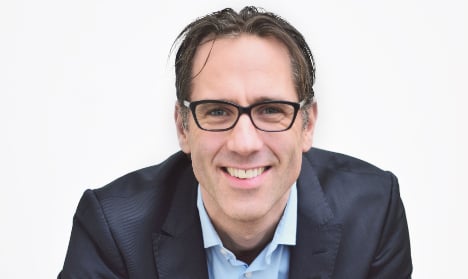
The Sheraton hotel (left) was one of Gulickx's first projects in Stockholm. Photo: TT
A passionate globetrotter who's obsessed with improving hotel experiences across the world, Dutch luxury travel consultant Jeroen Gulickx moved to Stockholm in 2001 and says it's the perfect base from which to do business.

